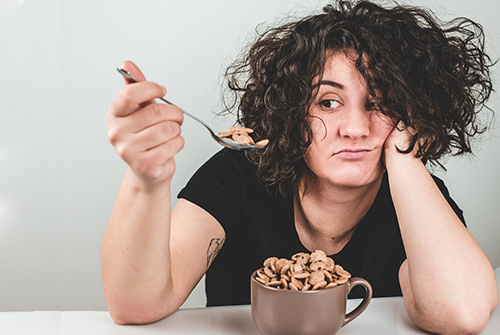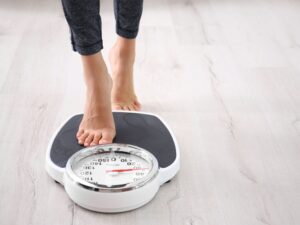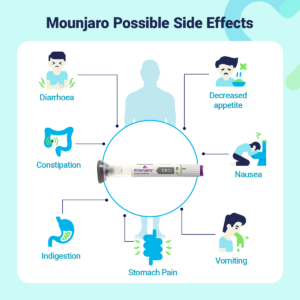Sometimes, our relationship with food can be more complex than just eating for energy or to satisfy hunger pangs.
As humans, we feel emotions to varying degrees, and sometimes, we might try to pacify those emotions by eating foods that we enjoy.
Unfortunately, this can sometimes lead to weight gain, especially if it happens fairly regularly.
In this article, we take a look at emotional eating, what it is, why it happens, and what you can do to reduce how often you eat food to pacify your emotions.
If you struggle with emotional eating and you’re considering taking weight loss medication to help you manage your weight, you may want to look at changing some of your emotional eating habits to give yourself a helping hand.
Semaglutide can help with appetite reduction, but if you eat due to stress, sadness, or other emotions when you aren’t hungry, you may end up carrying on with these habits which could hinder your progress.
What is emotional eating?
Emotional eating is a phrase that describes eating food to satisfy an emotional hunger rather than a physical one.
One of the most common stereotypes of emotional eating is depicted in Bridget Jones’ Diary, where a lonely and depressed Bridget is wrapped up in her quilt eating a tub of ice cream and a packet of crisps following a breakup.
However, in real life, emotional eating can often look fairly different, and sometimes isn’t as easy to identify.
One of the similarities, however, is that in Bridget Jones’ Diary, the protagonist is using food to pacify herself during a tough time.
This is often the case for many people who comfort eat or struggle with emotional eating.
In some cases, people that are experiencing negative emotions may actually restrict their food intake (especially if those negative emotions are related to self-image), but overall, emotional eating generally describes an increased intake of food during an emotional time – positive or negative.
Why do we comfort eat?
There are a multitude of reasons as to why we may comfort eat, and it can differ from person to person, but the main thing to remember is that we don’t always eat just because we’re hungry.
Sometimes, emotional eating doesn’t have to be triggered by an event or any particular negative emotion – often, people find themselves eating or snacking due to boredom, or to fill some time.
Other reasons for emotional eating could include:
- Stress
- Anxiety
- Depression
- Loneliness
- Anger
- Fear
- Bereavement
- A break up
- Childhood habits (i.e. if you were rewarded with sweets or other types of food as a child)
There could also be endless reasons on top of these, but generally speaking, the reasons listed above tend to be the most common causes of emotional eating.
In addition to this, when we eat, dopamine (also known as the “pleasure hormone”) is released in the brain, which can also help in creating a negative cycle of emotional eating, as dopamine helps us to feel good.
Because of this, comfort eating may temporarily make you feel happier, but those that have been stuck in the cycle for years know that it doesn’t last for long.
Comfort eating is something that most people have experienced at some time or another, and it isn’t always a negative thing.
The odd treat after a particularly hard day shouldn’t be frowned upon, but it’s when these treats become a habit or regular occurrence that problems can begin.
Is emotional eating an eating disorder?
Whilst there isn’t a specific eating disorder that describes emotional eating, certain traits can arise from comfort eating that may mean that you display signs of other eating disorders.
For example, if you tend to eat large volumes of food when you emotionally eat (especially if you aren’t physically hungry or if you eat to the point of being uncomfortable), then you may display some symptoms of binge eating disorder (BED).
Your emotions can also affect your food intake in other ways, for example, if you avoid eating due to negative emotions or feelings about yourself.
It’s these disordered patterns of eating that can cause more health issues, whether that’s due to excessive calorie intake, or not consuming enough energy.
Emotional eating by itself isn’t usually a cause for concern in terms of eating disorders unless the behaviours happen often or regularly enough to become a problem, but eating junk food if you’re stressed occasionally doesn’t mean that you have an eating disorder.
If you do suspect that you may have a disordered relationship with food, please visit Beat Eating Disorders for more information and support.
Beat Eating Disorders, also known as Beat, is a charity based in the UK and it provides support and encouragement to people with eating disorders with the goal of ending the pain and suffering caused by these conditions.
It’s important that you recognise the symptoms of various eating disorders in order for you to receive the help that you need.
How to stop emotional eating
Emotional eating is something that can be quite difficult to stop, especially if it’s something that’s become a habit over several years or even as far back as childhood.
However, stopping emotional eating isn’t about quitting cold turkey, as that could do just as much damage as good – the best way to make any substantial lifestyle changes is to do it gradually so that you end up adopting newer and healthier habits over time.
Don’t beat yourself up if you have a bad day and end up reaching for the snacks.
Overcoming emotional eating is something that takes time and work, and it isn’t going to happen instantly or in a short space of time for most people.
By taking pressure off yourself and working on gradually reducing how many times you comfort eat, you’re less likely to become upset if you don’t manage it one day, as this can actually increase the amount of emotional eating you might partake in.
Unfortunately, if you try to stop emotional eating and end up relapsing into old habits, it can sometimes cause feelings of shame, depression and guilt depending on the person.
Because of this, you can end up getting trapped in a negative cycle, which can just perpetuate the habit of comfort eating.
Because emotional eating is strongly linked with mental health, traditional weight management techniques may need to be used alongside mental health support.
This can include treatments like talking therapies if the emotional aspect of comfort eating is deep-rooted.
Sometimes, before we’re able to change a negative habit, we need to identify what causes it.
If you notice that you tend to comfort eat after a stressful day at work, you might want to think about various coping mechanisms that you can put in place to ensure that you aren’t as stressed and are therefore less likely to seek out snacks to comfort eat at home.
Some people find that they end up reaching for “junk” food after some bad news or a sudden upsetting event.
These can be more difficult to handle, as there isn’t a great deal that we can do to prepare for life’s uncertainties.
If you do find that you’re emotional eating for a longer period of time (for example during bereavement or after some upsetting news), you may find it helpful to look at the types of foods that you choose when you’re upset and evaluate how you can make healthier swaps or changes to the foods that you usually go for.
If you tend to go for sweet foods, it might be a good idea to make a fruit salad that you can grab a bowl of when you feel the need to comfort eat, whereas if you generally eat savoury snacks such as crisps or cheese, you may find that buying snacks that are rich in fibre or protein could help to curb your negative eating habits.
For example, swapping out crisps for vegetable sticks with hummus could help to reduce your calorie intake as well as helping you to get more vegetables and fibre into your diet.
Alternatives to emotional eating
Some people would rather replace the action of eating with something else entirely, instead of making healthy changes to the foods that they tend to eat.
Luckily, there are hundreds of activities that you could choose to do instead of reaching for the snack cupboard or fridge.
Taking up a new hobby or rekindling an old one could be a fantastic alternative to eating when you feel emotional.
Some people decide to take up crafts such as knitting, cross-stitch or crochet to keep their hands busy and stop them from snacking.
In addition to this, the enjoyment and fulfilment of taking part in a hobby can often make you feel better than if you were to comfort eat.
If handicrafts aren’t your thing, you could try going for a walk or doing some exercise when you next feel like emotional eating.
When it comes to stress and low mood, exercise can really help to make you feel better, and it can also provide some much-needed downtime to clear your head of whatever is getting to you.
If circumstances don’t allow for exercise (for example if it’s late at night or you have a disability), another good alternative to emotional eating could be gaming or calling a friend for a chat.
Having a support network around you on your weight management journey is extremely important, so talking to a friend if you feel down may be enough to cheer you up or take your mind off the emotional need to eat.
Whatever you choose to do to combat your emotional eating, it’s always a good idea to make sure that your mental health is balanced and looked after, in whichever way works for you.
You can always mention this to your prescriber during your myBMI consultation, or alternatively, you may want to see your own GP to ask about local services that could improve your mental health.
For more information on mental health services that are available via the NHS, please click here.


















